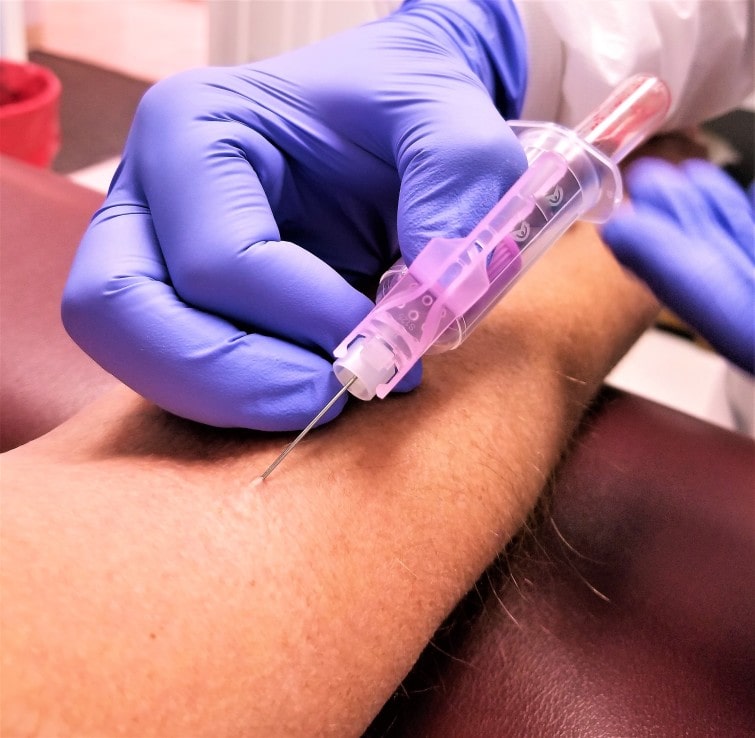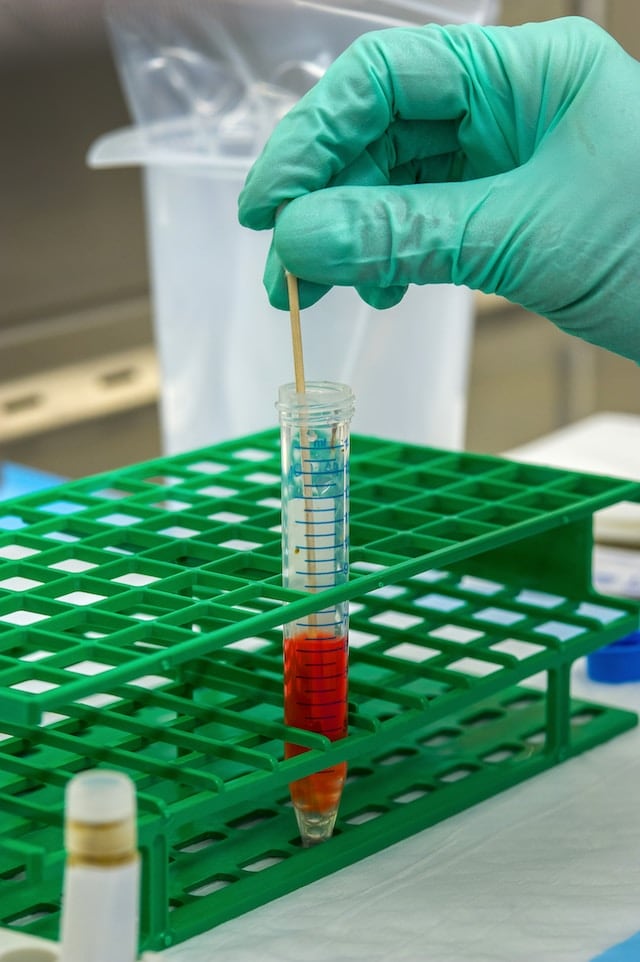What is an IgE allergy blood test?
What to expect with your allergy blood test?


Why is it important?
The blood test for allergies is used to identify the specific allergen that triggers an allergic reaction. The test is often recommended for people who have symptoms of allergies, such as sneezing, itching, and hives, but whose symptoms cannot be explained by other medical conditions.
The test can also be used to:
- Confirm a suspected allergy
- Monitor the effectiveness of allergy treatment
- Identify potential allergens before starting allergy treatment
Will I need to do anything to prepare for the test?
None. You don’t need any special preparations for the test. Fasting isn’t required.
FAQ’s
Blood allergy tests are generally considered to be a reliable and accurate method of identifying allergies. The accuracy of a blood allergy test can vary depending on the specific type of test being performed, the allergen being tested for, and the laboratory conducting the test.
There are two main types of blood allergy tests: the IgE antibody test and the IgG antibody test. The IgE antibody test is the most commonly used test for allergies and is considered to be highly accurate. It measures the level of IgE antibodies in the blood, which are produced by the immune system in response to allergens.
The IgG antibody test, on the other hand, is less commonly used for allergy testing and its accuracy is more controversial. It measures the level of IgG antibodies in the blood, which are also produced by the immune system in response to allergens.
Yes, it is generally recommended that you stop taking antihistamines before an allergy blood test. Antihistamines can interfere with the accuracy of the test results by reducing the amount of histamine released and the body’s allergic response.
The length of time that you need to stop taking antihistamines before testing can vary depending on the specific type of antihistamines and the individual’s health status. It is important to talk to your healthcare provider before stopping any medication, including antihistamines. We may recommend stopping antihistamines anywhere from 3 to 10 days prior to the test, depending on the type of antihistamine and the specific test being performed.
If you are unsure whether or not you should stop taking antihistamines before an allergy blood test, you should speak with your doctor who ordered the test to determine the best course of action.
When the time is critical, Arizona Allergy Associates provides quick diagnostics and peace of mind.
AZ Allergy Associates Allergy Blood Test
We on AZ allergy Associates only do the Immunoglobulin E (IgE) – specific immunoassay methods on testing blood for allergy.
This test includes:
- Enzyme-linked Immunosorbent Assay (ELISA, or EIA) – is a test that detects and measures allergen-specific antibodies in your blood.
- Radioallergosorbent Test (RAST) – test your blood for specific IgE antibodies to find out what substances that you have allergic to.

What to expect from our service?
An AZ Allergy Associates certified health care provider will take a blood sample from a vein in your arm using a small needle. After the needle is inserted, a small amount of blood will be collected into a test tube or vial. You maybe feel a little sting when the needle goes in or out. This usually takes three to five minutes.
Will I need to do anything to prepare for the test?
None. You don’t need any special preparations for the test.
At Arizona Allergy Associates, our team members know you may feel apprehensive about your blood test results and get them to you as quickly as possible. Depending on the specific test, it may take an hour or longer. Your doctor will explain the results and the need for further testing or follow-up. Your treatment plan will depend on the type and severity of your allergy.
Visit one of our locations in Chandler, Gilbert/Mesa, Scottsdale, Phoenix, and Queen Creek/San Tan Valley.
When the time is critical, Arizona Allergy Associates provides quick diagnostics and peace of mind.